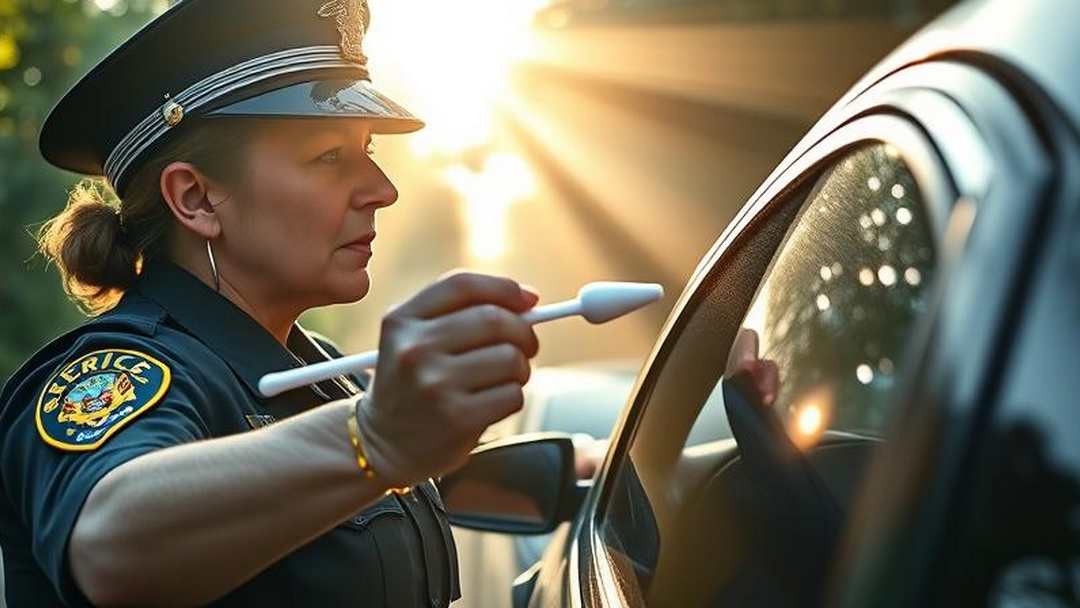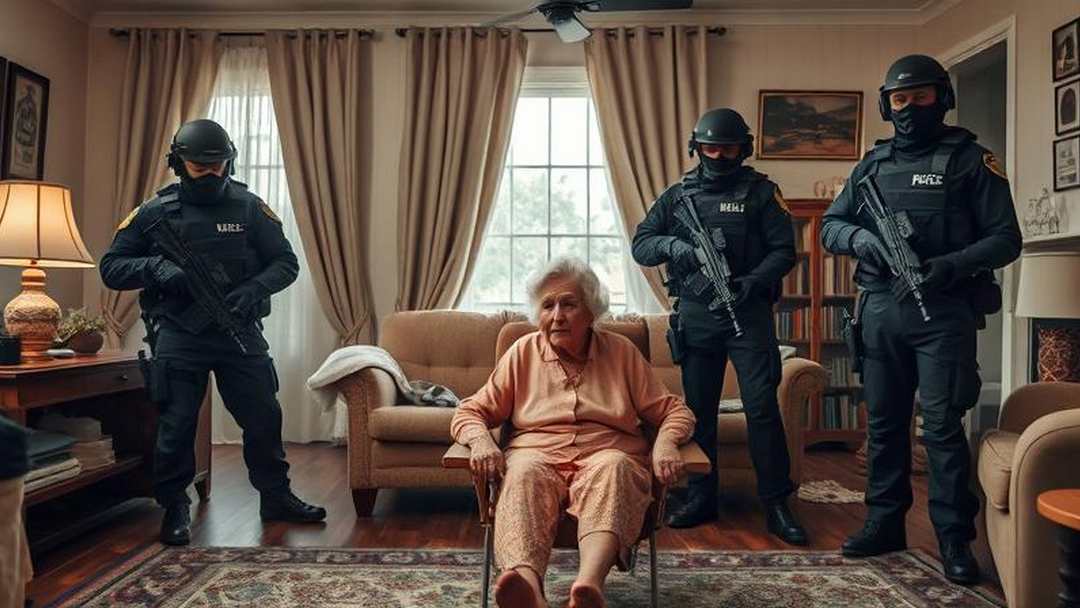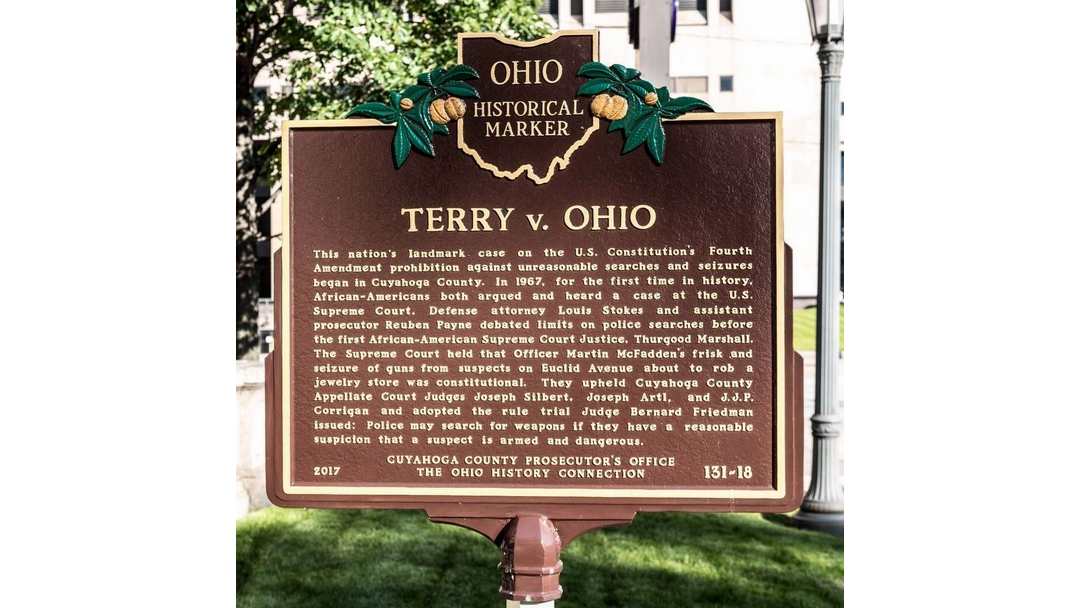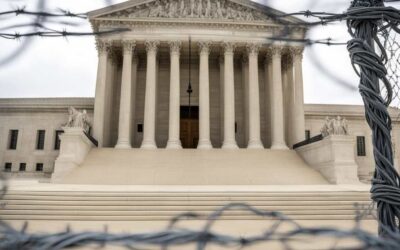Terry v. Ohio (1968)
Background
On October 31, 1963 while conducting his regular patrol in downtown Cleveland, seasoned Cleveland Police detective Martin McFadden, who brought 39 years of law enforcement experience to the job, observed three men behaving suspiciously as they paced back and forth in front of a jewelry store located on Euclid Avenue.
Concerned that the men were planning a robbery and possibly armed, McFadden identified himself as a police officer and inquired about their names. When the men merely mumbled their responses, McFadden conducted a frisk, discovering a pistol in John W. Terry’s overcoat pocket and a revolver in Richard Chilton’s coat pocket.
The unarmed third man, Katz, was noted in the incident where McFadden apprehended and charged Terry and Chilton for carrying concealed weapons. Judge Bernard Friedman of the Cuyahoga County Common Pleas Court subsequently found the defendants guilty, deeming that the suspicious behavior displayed by the men, coupled with McFadden’s genuine concern for his safety, justified the decision to conduct a frisk. This ruling was later upheld by the appeals court. In 1967, Terry brought the case before the U.S. Supreme Court.
In June 1968, the United States Supreme Court affirmed the conviction and set a precedent that allows police officers to interrogate and frisk suspicious individuals without probable cause for an arrest, providing that the officer can articulate a reasonable basis for the stop and frisk.
Significantly, Terry does not provide blanket authority to intrude on an individual’s right to be left alone, nor does it allow such intrusion based on a police offers inarticulate hunch that a crime is about to occur or is in progress.
However, it does radically expand police authority to investigate crimes where there is a reasonable basis for suspicion.
More in depth case detail can also be read here
Legal Counsel and Your Rights
When facing legal challenges, particularly in criminal cases, it is advisable to seek legal counsel immediately.
An experienced attorney can provide guidance on how to navigate interactions with law enforcement while safeguarding your constitutional rights.
Since 1993 our expert legal defense in navigating criminal law matters and protecting your constitutional rights are what we eat for breakfast everyday.
Contact Komorn Law PLLC if you’re ready to fight and win.
Research us and then call us.
Recent

Michigan lawmakers want to revive “junk science” roadside drug testing
The Roadside Drug Test...AgainHouse bills 4390 and 4391The proposed House bills 4390 and 4391 would enable law enforcement to administer tests aimed at assessing driver impairment; however, these testing devices do not provide information regarding the level of...

What Are Your Rights Before And After Arrest?
What are your rights before and after arrest?Generally, police require a search warrant to lawfully enter any private premises or to search electronic devices such as your phone or computer. If the police do not possess a search warrant, you are under no obligation to...
Other Articles
Government Drones in Your Life – Yes, They Made up a Reason
Long Lake Township v. Maxon The Costs Outweigh Benefits in Exclusionary Rule Application and the Slippery Slope of Fourth Amendment ProtectionsThe recent decision by the Michigan Supreme Court in Long Lake Township v. Maxon represents a significant shift in the...
Supreme Court Opinion – Created federal agencies need judicial oversight
Summary of the Opinion in Loper Bright Enterprises v. RaimondoIn Loper Bright Enterprises v. Raimondo, the Supreme Court addressed the enduring precedent set by Chevron U.S.A., Inc. v. Natural Resources Defense Council, Inc., which has shaped administrative law for...
Carjacking is a Federal Offense
Carjacking is a Federal OffenseCarjacking, the act of forcibly stealing an occupied vehicle, has long been a concern for public safety. It was a local and state issue until a series of violent incidents in the early 1990s that carjacking became a federal...
SCOTUS: No separate hearing required when police seize cars loaned to drivers accused of drug crimes
SCOTUS: When police seize cars loaned to drivers accused of drug crimes it does not necessitate a separate preliminary hearing.The U.S. Supreme Court has ruled against two women who loaned their cars to others arrested for drug crimes while using the vehicles, leading...
















